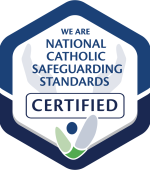COVID-19 update 5 August, 2021
The safety and wellbeing of our community remains paramount. The Catholic Diocese of Maitland-Newcastle and the Office of Safeguarding are continuing to follow relevant advice from the NSW Government.
Currently, LGAs in which we are located – Newcastle, Lake Macquarie, Maitland, Port Stephens, Cessnock, Dungog, Singleton and Muswellbrook – are following government orders and stay at home restrictions as detailed on the NSW Government website here.
We’re monitoring the situation closely and will continue to keep you updated.
The Office of Safeguarding (OoSG) offices in Mayfield and Newcastle West have been partially reopened. People wishing to attend the OoSG offices must pass the screening questions set out under the following section ‘Direct Contact Protocols’.
However, OoSG services are still being delivered through electronic medium where appropriate.
Diocesan workers can contact an OoSG investigator to report concerns for a child or vulnerable adult, have them recorded, ensure that reporting obligations are met, be given advice and have serious concerns responded to.
Intake services are available during office hours via phone (P. 4979 1390) or via email to childprotection@mn.catholic.org.au.
For more information on intake, refer to the Office of Safeguarding’s reporting abuse information webpage.
The OoSG cycle of face-to-face training has been suspended.
In the coming weeks diocesan workers will be advised of some online training options that OoSG personnel will be presenting.
Most Healing and Support services will continue to be offered using the phone and other electronic medium (e.g. video conferencing).
Face-to-face support groups are cancelled until further notice.
However, other face-to-face meetings can still occur if necessary, in accordance with the direct contact protocols set at the end of this advice.
For more information on healing services, refer to the Office of Safeguarding’s Healing and Support (Zimmerman Service) information webpage.
ADR will continue to be offered using electronic medium (e.g. video conferencing). Face-to-face preparatory meetings can still occur if necessary, in accordance with the direct contact protocols set at the end of this advice.
For more information on ADR, refer to the Office of Safeguarding’s ADR information webpage.
The cycle of school safeguarding audits conducted by the Office of Safeguarding will continue apace on the proviso that the school is able to support the Office of Safeguarding during its conduct.
The audit will be conducted by using electronic medium (e.g. MS Teams). On-site (face-to-face) auditing processes may still occur if necessary, in accordance with the direct contact protocols set at the end of this advice.
The OoSG will continue to conduct investigations as required using electronic medium (e.g. video conferencing). Conducting face-to-face inquiries will occur if necessary, in accordance with the direct contact protocols set at the end of this advice.
For more information on the conduct of a diocesan investigation, refer to the Office of Safeguarding’s investigative processes information webpage.
The OoSG will continue to conduct risk assessments, including service-based assessments using electronic medium. On site risk assessments may occur if the service is able to support the OoSG.
The Diocese will continue to work to meet its obligations to produce a just resolution to survivors seeking redress, using electronic medium (e.g. video conferencing) and dependent on any possible delays or restrictions raised by legal firms and mediation facilities.
For more information on redress, refer to the Office of Safeguarding’s seeking redress from the Diocese information webpage.
Should direct or ‘face-to-face’ contact be necessary for undertaking OoSG activities, there are two steps that OoSG staff are required to address prior to arranging the contact, which includes a set of screening questions and determining whether anyone who will be attending the direct contact, is a member of an ‘at risk group’.
During any meeting social distancing rules will be followed.
Prior to attending an OoSG office or having a face-to-face meeting, OoSG staff are required to confirm with any persons attending an OoSG office or participating in the meeting that they:
If any of the persons answer ‘YES’ to any of the above, that person will not be allowed to attend an OoSG office or will be asked not to attend a face-to-face meeting. If the person affected is the client, the meeting will be rescheduled.
Should you wish to visit an OoSG office or participate in a face-to-face meeting, the following social distancing protocol should be applied:
The current advice from Government on social distancing is available online from Australian Government directives on ‘social distancing’.
Office:
50 Crebert St, Mayfield
PO Box 152, Mayfield NSW 2304
P: 02 4979 1390
E: childprotection@mn.catholic.
www.officeofsafeguarding.org.au
